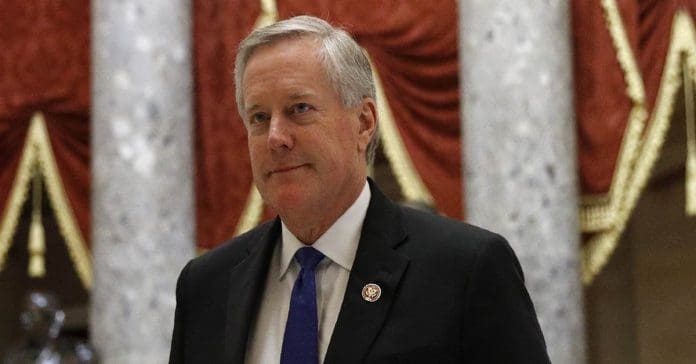The Jan 6 Committee has confirmed that Mark Meadows is next in line to face criminal contempt charges for his refusal to collaborate with the committee probing the insurrection and attacks on Capitol. The Jan 6 Committee Chairman, Bennie Thompson, wrote to George Terwilliger, Meadows’ attorney that his client had not cooperated with the panel.
The Jan 6 panel letter stressed that they had to go forward with the contempt measures and also endorse that the organization where Mark Meadows served should refer criminal prosecution against him.
Jan 6 Committee To Deliberate Next Week On Contempt Proceeding Against Meadows
Thompson told reporters later that the Jan 6 committee is expected to meet a week from now to deliberate whether to quote Meadows for proceedings of contempt. He clarified that there was every intention to go forwards with a citation of contempt on Mark Meadows.
Meadows attorney, Terwilliger is yet to respond to requests for comment.
Earlier Mark Meadows had declined to appear before the Jan 6 Committee for a scheduled deposition on Wednesday. He instead filed a suit against the 9 Select Committee members including Nancy Pelosi, the House Speaker.
In his suit, Meadows alleged that any subpoena sent to him violate legal protection afforded to a president’s senior advisers. The suit also charges the Jan 6 Committee for the excessive use of subpoenas to acquire Meadows’ mobile data.
Both Thompson and Liz Cheney, the vice-chairman of the Committee said that Meadows’ flawed lawsuit would not succeed in slowing the investigation or stopping the committee from obtaining relevant information.
Similar charges have already been initiated against Steve Bannon, Trump’s chief strategist. Jeffrey Clark, a former official in the Justice Department could also face similar charges.
Another of Trump’s trusted and longtime advisers, Roger Stone, had told the Jan 6 Committee about his refusal to testify and has cited his right under the 5th Amendment against self-incrimination.






